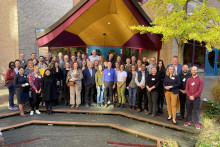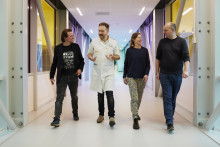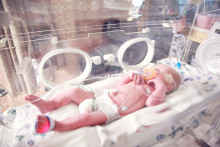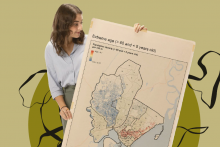- EN
- NL
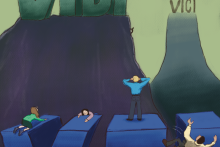 Between Lab and Life
Between Lab and Life‘Everything matters, except for science’
Winning the coveted Vici grant has little to do with science, as professor Jai Prakash discovered when he, like many others, fell short of the award. ‘It’s like plummeting down from the tenth floor.’
- EN
- NL
 Tussen Lab en Leven
Tussen Lab en Leven‘Alles doet ertoe, behalve de wetenschap’
De toewijzing van de felbegeerde Vici-subsidie heeft weinig te maken met wetenschap, ervaarde hoogleraar Jai Prakash toen hij, net als vele anderen, misgreep. ‘Het is alsof je van de tiende verdieping naar beneden valt.’
- EN
- NL
 Tussen Lab en Leven
Tussen Lab en Leven‘Alles doet ertoe, behalve de wetenschap’
De toewijzing van de felbegeerde Vici-subsidie heeft weinig te maken met wetenschap, ervaarde hoogleraar Jai Prakash toen hij, net als vele anderen, misgreep. ‘Het is alsof je van de tiende verdieping naar beneden valt.’
- EN
- NL
 Between Lab and Life
Between Lab and Life‘Everything matters, except for science’
Winning the coveted Vici grant has little to do with science, as professor Jai Prakash discovered when he, like many others, fell short of the award. ‘It’s like plummeting down from the tenth floor.’
- EN
- NL
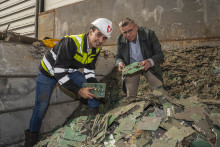 Science
Science‘Afval omzetten in waardevolle bouwstenen voor de industrie’
Met een subsidie van 3,8 miljoen euro van de Rijksdienst voor Ondernemend Nederland (RVO), richt het project Renewable Building Blocks from Complex and Wet Waste Streams (ReBBlocCS) zich op het terugwinnen van waardevolle chemicaliën uit ‘complexe’ afvalstromen. UT’er Boelo Schuur, hoogleraar Scheidingstechnologie is betrokken bij de coördinatie van het project.
- EN
- NL
 Science
Science‘Converting waste into valuable building blocks for the industry’
With a grant of 3,8 million euro, from the ‘Netherlands Enterprise Agency (RVO), the project Renewable Building Blocks from Complex and Wet Waste Streams (ReBBlocCS), is dedicated to recover valuable chemicals from ‘complex’ waste streams. Boelo Schuur, UT Professor of Separation Technology, is involved in coordinating the project.
- EN
- NL
 Science
Science‘Produceren van hoogwaardige microcapsules opent deuren naar nieuwe toepassingen’
Wetenschappers van de Engineering Fluid Dynamics-vakgroep van de Universiteit Twente zijn erin geslaagd om snel en efficiënt microcapsules van uniforme grootte te maken. Deze capsules hebben vele belangrijke toepassingen, onder andere als het gaat om een gecontroleerde afgifte van medicijnen. De ontdekking verscheen in januari als coverartikel in het Advanced Materials.
- EN
- NL
 Science
Science'Producing high-quality microcapsules opens doors to new applications'
Scientists from the Engineering Fluid Dynamics group at the University of Twente have succeeded in efficiently producing uniform-sized microcapsules. These capsules have many important applications, including controlled drug delivery. Their finding was published as cover article last January in Advanced Materials.
